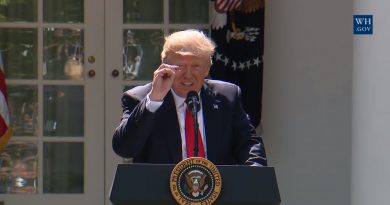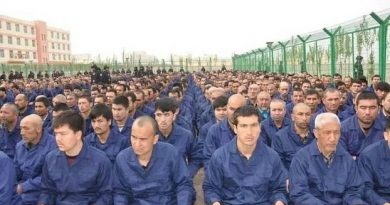Violence Escalates as South Sudan’s Peace Process Deteriorates
Sofia A. Diaz
Staff Writer
Tensions in South Sudan are rising between the leaders of the country’s largest civil war factions—President Salva Kiir and Vice President Riek Machar—after a Nasir army base was overrun by an insurgent militia. Only a few days later, a United Nations helicopter faced an attack leading to the deaths and injuries of dozens, UN News reports. The rise in tensions warranted the issuing of the removal of non-emergency United States personnel in South Sudan and is leaving many in fear of returning to a series of full-scale war.
On March 7, a UN mission (UNMISS) helicopter attempting to evacuate wounded South Sudanese soldiers was attacked in Nasir, a major city in Upper Nile near the Ethiopian border, causing it to catch fire. A crew member and more than two dozen members of the South Sudanese military were killed in the attack, leaving others including a military general injured. Nicholas Haysom, the Head of UNMISS publicly announced his call for accountability, stating “The attack on UNMISS personnel is utterly abhorrent and may constitute a war crime under international law,” according to UN News.
The following day, on March 8, the chairperson of the UN Commission on Human Rights in South Sudan, Yasmin Sooka, issued a statement of warning saying, “We are witnessing an alarming regression that could erase years of hard-won progress” and further advocates for peace, directing her statement to Kiir and Machar, Al Jazeera reports. Sooka further stated, “Rather than fueling division and conflict, leaders must urgently refocus on the peace process, uphold the human rights of South Sudanese citizens, and ensure a smooth transition to democracy,” says Al Jazeera.
Considering the escalation of tensions in the country, on March 9, the U.S. State Department ordered its non-emergency government personnel in and around the Juba region to leave due to safety concerns. The State Department warned of ongoing armed conflict, with weapons being readily available to the population, and further stated that various forms of crime including carjackings, assaults, shootings, ambushes, and kidnappings are common, deeming the area unsafe for U.S. government employees and journalists, writes Reuters.
In response to this escalation, Uganda aimed to assist President Kiir by deploying an unknown number of troops to Juba to support the already fragile South Sudanese government against a potential rebel advance on the city. Major General Felix Kulayigye, a spokesperson for the Ugandan military told on Tuesday that Ugandan President Yoweri Museveni serves as the promoter of the peace process, working to maintain good relations between Kiir and Machar to uphold a unified government.
Since the five-year civil war in South Sudan that erupted in 2013- leading to the deaths of over 400,000 people- there have been attempts to mediate the conflict and establish peace in the region. In 2018, Kiir and Machar participated in negotiations that led to the Revitalized Agreement on the Resolution of the Conflict in South Sudan, a peace deal that resulted in a ceasefire and the formation of a unified government, says the Council on Foreign Relations. However, the implementation of the peace deal has been leisurely, and the violence has since continued. Implementation of the deal was initially scheduled for February 2023, but the government extended the period of transition to February 2025.
Additionally, long-delayed national elections that were initially scheduled for December 2024 had been postponed by two years to 2026. President Kiir has since proclaimed his intentions to run, stating that it will be ‘a fair and free race,’ reports the Council on Foreign Relations. The sustained rift between Kiir and Machar has raised fears of renewed violence as tensions mount in the lead-up to the election period.
Violence and political tensions have notably escalated since the beginning of 2025, jeopardizing the progress achieved from the 2018 peace agreement. Clashes have occurred between Sudan’s official military force, the South Sudan People’s Defense Forces (SSPDF), and the Sudan’s People Liberation Movement-in-Opposition (SPLA/IO), the military wing of Vice President Machar’s party. According to the Council on Foreign Relations, severe fighting in the Upper Nile between the SSPDF and the White Army, an affiliate militia of the SPLA/IO, was reported in February, resulting in the use of airstrikes. In coordination with the SSPDF and the White Army, UNMISS evacuated wounded soldiers from the conflict zone, reports BBC News.
The White Army overran an army base in Nasir on March 4, and despite several allies of Machar and oppositional leaders being arrested that day, tensions continue to rise. The Guardian reports that analysts at the International Crisis Group’s Horn of Africa have begun warning that these escalating tensions could soon lead to a full-scale conflict and are urging UN peacekeepers to prioritize the safety and lives of civilians.
Image courtesy of Getty Images.


